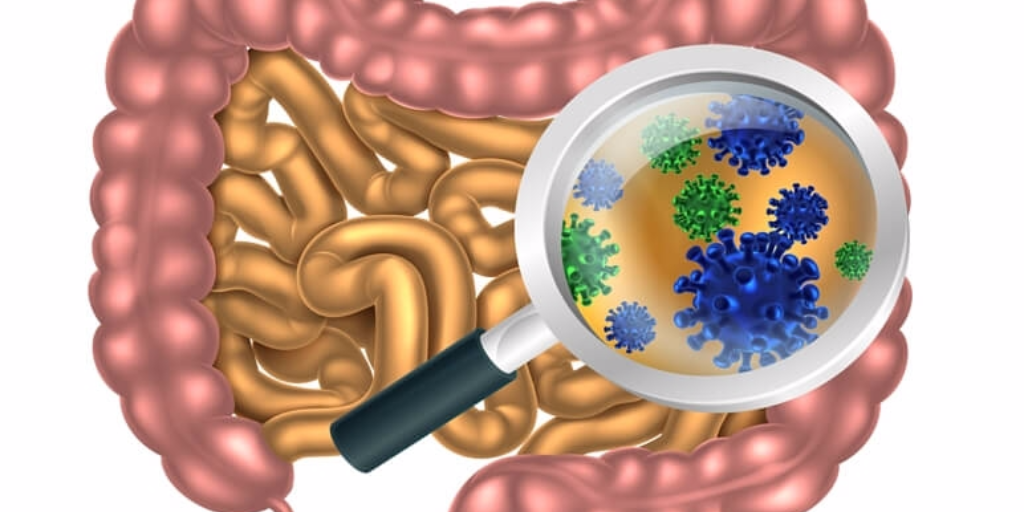Offer
Provide additional details about the offer you're running.

There was a time when gut health was a bit of a mystery. These days, just about everyone knows that it’s important, they are just not 100% certain as to why. Believe it or not, the unsuspecting gut can affect a large percentage of our bodily functions. Have it in mint condition and you barely even notice it, but don’t look after it and you’ll know about it pretty quickly. You know when you don’t feel right, you know when you get a feeling it the pit of your stomach that just won’t go away. Yes, sometimes it is nerves or stress, which can also be attributed to your gut and ‘second brain’ (more on that later), but sometimes it can be more. Either way, taking care of and trusting your gut is imperative to your overall health.
For those of you who aren’t already aware, here’s a quick rundown on the gut, some symptoms that poor gut health can trigger and some of the conditions that people who do not sufficiently take care of their gut can suffer from.
The gut (gastrointestinal tract) starts in the mouth and is essentially a long tube that works it’s way down to the anus. In between these start and end points are obviously a number of ‘stops’ along the way. Once consumed, food passes the oesophagus, the stomach, the small intestine, the appendix, the large intestine, colon, rectum and finally reaches the back passage or anus.
‘But hang on a minute!’ I hear you plead, ‘I though the gut was just my stomach, my guts?!’… And so the mystery begins to unfold. When people begin to understand the true meaning and purpose of the ‘gut’ and the fact that it takes up such a large percentage of our bodies and includes a multitude of organs, they tend to have, what I like to refer to as a ‘light-bulb-moment.’
In simple terms, what the gut is designed to do is break down food, absorb nutrients, prevent foreign and toxic molecules from entering the blood stream and expel waste - but it is also considered to be our ‘second brain’ – it’s that powerful. You see, the gut is lined with a multitude of neurons and connected to our brains via the vagus nerve, the tenth cranial nerve. Studies have shown that the vagus nerve carries messages from the gut to the brain and vice versa. By no means does our second brain improve thought processes, contemplate astrophysics or deliberate over the discovery of radium, it’s functionality is much more mechanical. It churns, mixes, contracts – but also allows us to ‘feel’ what the gut feels. It explains a lot as far as nervous butterflies or stomach issues as a result of stress go. You can feel sick with nerves, worry or stress and when you think about it in that context, how could the brain and the gut NOT be linked. It makes perfect sense!
Now, I could go on about all of the intricacies of the gut for hours and hours, but in today’s busy world none of us really have the time to perch ourselves in front of our computers for quite that long, so I’ll cut to the chase.
You can obviously find much more detailed explanations online, but now that you know what it is and how it works, let’s go over what happens if your gut isn’t adequately cared for.
Within your gut is a balance of good and bad bacteria. Have an even balance and it’s all rainbows and unicorns, but do something to compromise that balance and you could be in for a world of discomfort.
A poorly maintained gut can result in symptoms and conditions such as;
There are a number of things you can do to avoid issues like intestinal permeability, a decrease in gut motility, a decrease in mucus production by goblet cells – and a decrease in secretory IgA from inhibiting digestion and decreasing intestinal blood flow that alters gut microbiome. They range from diet to lifestyle choices, but don’t have to be complicated.
Here are a few ideas to get you started;
The gut is a biological force to be reckoned with. It can make or break our health. So, before you crack open that extra beer, enter that fast food drive through or drive yourself and ‘both’ of your brains crazy with stress, try to remember how important gut health really is. It really doesn’t take much to be the healthiest possible version of yourself.
Get started by giving bone broth a try. I cup a day for 30 days!
*Broth of life does not provide medical advice and recommends that you consult your physician for medical guidance or instruction.
*If you have a gut disorder that is not due to a lack of gut maintenance, this article is obviously not directed at you.
*Individual results may vary.
http://www.navacenter.com/community/article-library/browse/2015/06/01/your-body's-second-brain---the-importance-of-gut-health
https://www.ncbi.nlm.nih.gov/pubmed/25394236
http://www.gutfoundation.com.au/gut_health
http://www.healthknot.com/gut_health.html
https://patient.info/health/the-gut
http://www.foodrenegade.com/your-gut-understanding-the-keys-to-health/
https://www.scientificamerican.com/article/gut-second-brain/